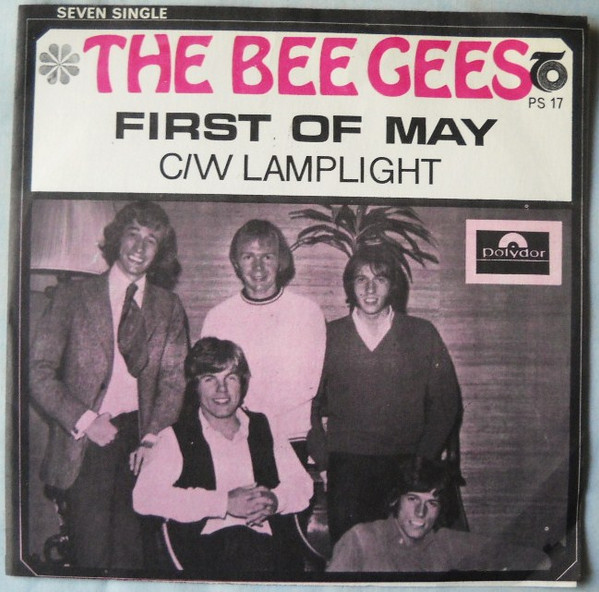
Rediscover the Melancholy Elegance of the Bee Gees’ “First of May” (1969)
Few ballads from the late 1960s continue to resonate with such gentle poignancy and melodic grace as “First of May”, performed by the legendary British-Australian group, the Bee Gees. Released in 1969 as part of their fourth studio album “Odessa,” this quietly powerful piece captures the group’s unique ability to blend harmony, emotion, and lyricism into something that lingers far beyond the final note. Written by brothers Barry, Maurice, and Robin Gibb, “First of May” serves as a testament to the Bee Gees’ songwriting maturity during a formative era of their careers—long before their iconic transformation into disco superstars in the following decade.
What makes “First of May” especially captivating is its simplicity, which lays bare the emotional core of the composition. The track opens with a softly played piano—majestic in its restraint—and gradually unfolds into a delicate orchestration. Barry Gibb’s plaintive vocals carry the weight of the lyrics with the poise of a seasoned balladeer, singing of memory, the passage of time, and the fragile beauty of youth. This song is not swelling with grandiosity; instead, it softens the edges of reflection with a whisper rather than a roar.
The title, “First of May,” is itself a quiet metaphor. It conjures the image of life’s early spring—the transition between innocence and experience, where we remember simpler times and also feel the inevitability of change. The song explores themes that are universally felt yet seldom spoken aloud with such tenderness. It’s not merely nostalgia, but a more complex meditation on how we carry our past with us, how time shapes us, and how some moments, no matter how small, become defining memory markers in the heart.
Upon its release, “First of May” was chosen as the lead single from “Odessa.” Though modest in chart performance, particularly in the US, it found greater acclaim in the UK and parts of Asia, and even more so in retrospective appreciation. It has become one of those rare songs whose value seems to grow with each passing year—its fragile beauty reaching new listeners even today.
For fans who know the Bee Gees primarily for their disco-era hits, discovering “First of May” is akin to opening a long-lost letter from an old friend. It shows the trio not only as pop innovators but as deeply human songwriters, capable of drawing from the depths of lived emotion and turning it into something universal. A song of memory, of first love, and perhaps, of gentle goodbyes, “First of May” remains one of the Bee Gees’ quiet triumphs—a piece that sounds as timeless now as it did over half a century ago.